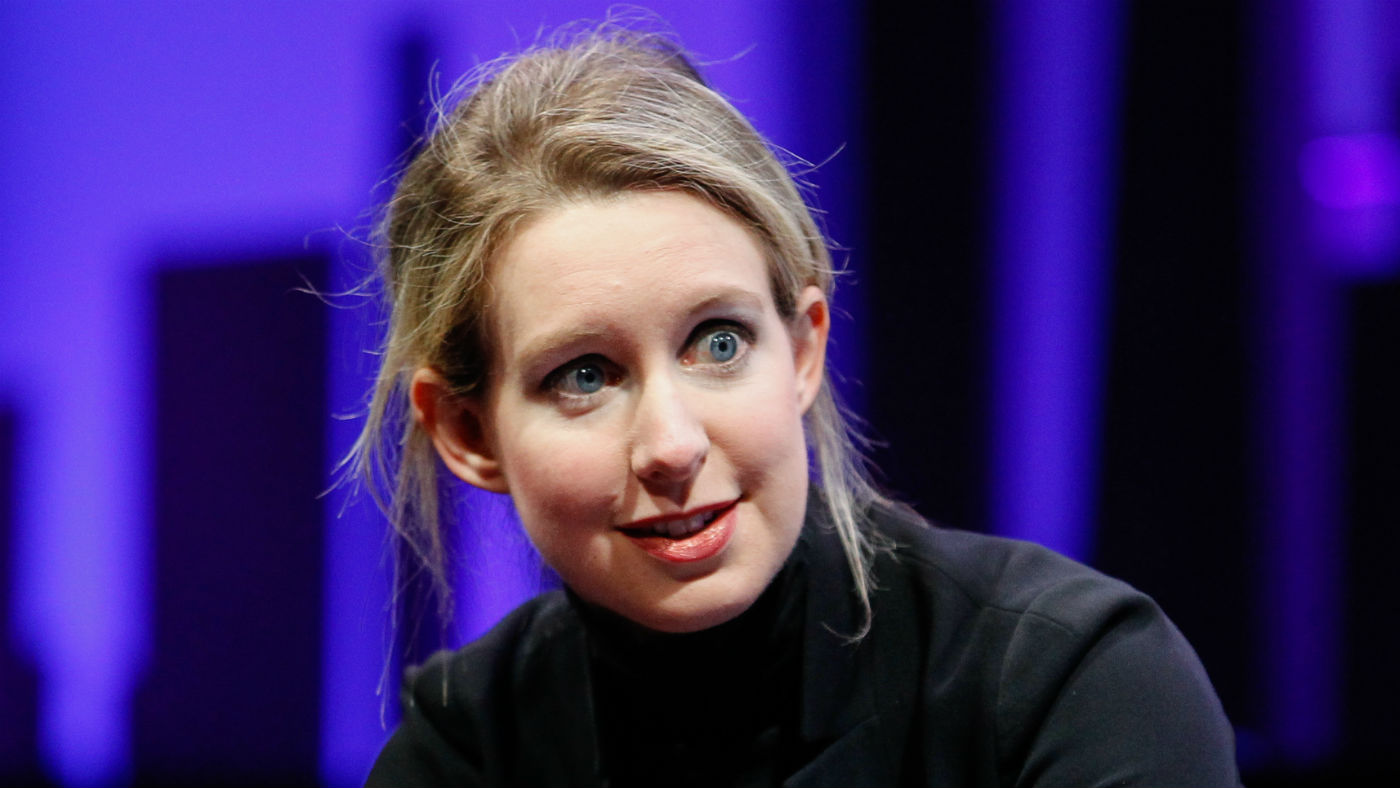Theranos: the stunning rise and fall of a biotech trailblazer
Scandal-hit blood-testing firm once hailed by Wall Street is going out of business

A free daily email with the biggest news stories of the day – and the best features from TheWeek.com
You are now subscribed
Your newsletter sign-up was successful
The blood-testing firm Theranos has announced it will formally dissolve, after failing to secure further investment or attract a buyer for its assets.
In an email to shareholders obtained by The Wall Street Journal, Theranos chief executive David Taylor said he had engaged the services of investment bank Jeffries to try to “maximise the value of the company”. Although the bank had talked to more than 80 potential buyers, he said, there had been no offers.
It marks a dramatic fall for a company once universally hailed by Wall Street and the medical profession - and valued at $9bn (£7bn).
The Week
Escape your echo chamber. Get the facts behind the news, plus analysis from multiple perspectives.

Sign up for The Week's Free Newsletters
From our morning news briefing to a weekly Good News Newsletter, get the best of The Week delivered directly to your inbox.
From our morning news briefing to a weekly Good News Newsletter, get the best of The Week delivered directly to your inbox.
Founded in 2003 by 19-year-old Elizabeth Holmes, Theranos had claimed its “revolutionary” Edison devices could test for conditions such as cancer and cholesterol with only a few drops of blood from a finger-prick, rather than taking full blood samples by needle from a vein.
Despite lingering concerns about the reliability of the Theranos blood-testing technology, Holmes managed to raise $700m (£542m) in funding, including from Oracle co-founder Larry Ellison and Rupert Murdoch.
She had also assembled what The Independent calls “an all-star board” which included current US Defense Secretary James Mattis, and two former secretaries of state — Henry Kissinger and George Shultz.
In 2015, Forbes named her the world’s youngest self-made billionaire, with an estimated personal fortune of $4.5bn (£3.5bn).
A free daily email with the biggest news stories of the day – and the best features from TheWeek.com
However, things started to fall apart in 2012, when the US Department of Defense decided not to develop the technology due to the devices' unpredictable results.
This prompted a Wall Street Journal investigation of the firm, resulting in a series of exposes published from October 2015.
Theranos denounced these articles, but by June 2016 it was facing legal challenges from investors, medical authorities and five federal agencies. By April 2017, its clinical laboratory testing certificate was revoked, causing the pharmacy chain Walgreens to terminate its partnership with the start-up and sue Theranos for $140m (£108m).
In June, Holmes and her business partner Ramesh Balwani were charged by the US Department of Justice, which alleges Theranos’ blood tests produce inaccurate results which put patients at risk, with two counts of conspiracy to commit wire fraud and nine counts of wire fraud.
Earlier this year, Holmes settled a separate civil suit filed by US financial regulator, the Securities and Exchange Commission, which claimed she had deceived investors about the firm's technology and falsely suggested its products had been used by the US Army in Afghanistan.
“The Theranos story is an important lesson for Silicon Valley,” said Jina Choi, director of the SEC’s San Francisco office, when the settlement was announced. “Innovators who seek to revolutionise and disrupt an industry must tell investors the truth about what their technology can do today, not just what they hope it might do someday.”
“Theranos is an example of hubris, sloppy reporting, and too-credulous investors” says The Verge, which claims investors have lost in excess of $1bn in total. “The world would like to believe that Theranos was a wake-up call, but as many have said: it probably won’t be”.